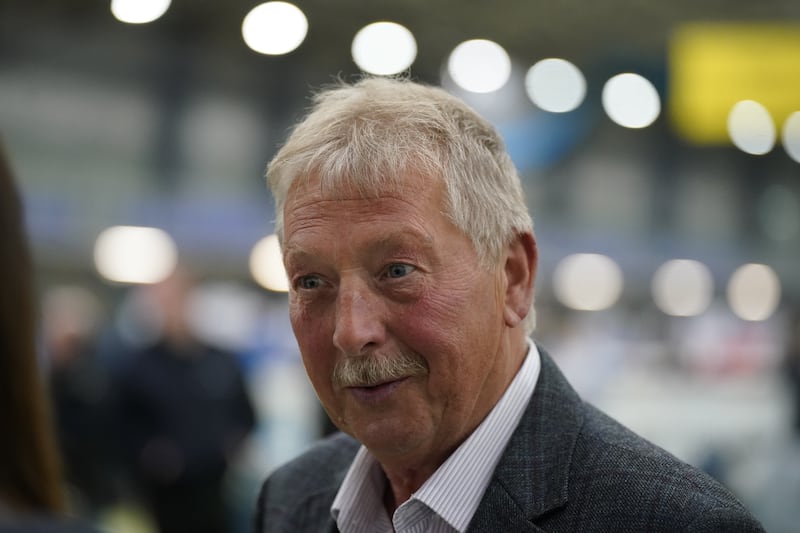It was getting close to lunch time and Martin McGuinness told me that as he was heading straight for Belfast, he was going to get a quick bite in the pub next door and did I fancy joining him? So off we trotted to the Delacroix and we didn’t half get some funny looks, the editor of the local paper having fish and chips with the IRA terror chief.
I remember that day really well for two reasons.
For starters, Martin rarely asked you to socialise with him and secondly, he said something during our lunch that I had reason to remember… big time.
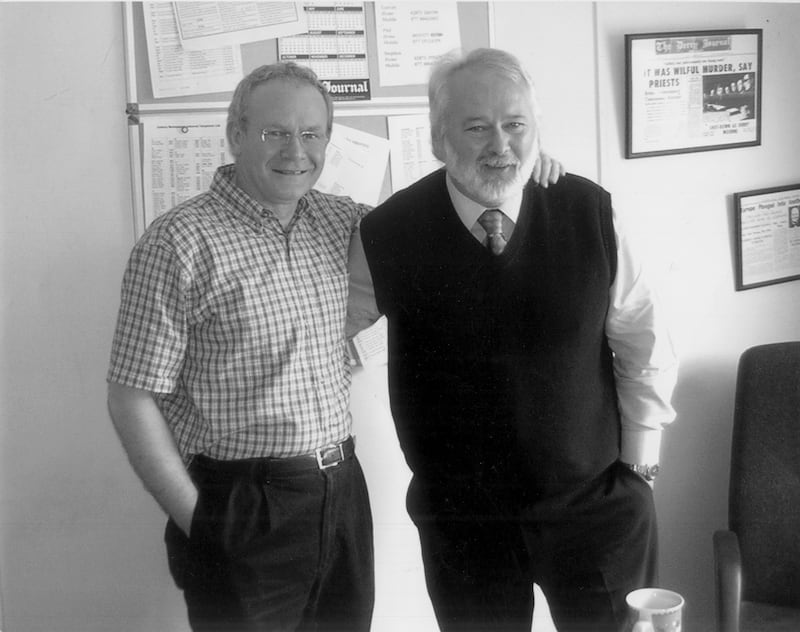
Just for the record, I am pretty certain the date was Wednesday February 7 1996. Here’s the background to our talk that day, and why the date is significant.
The IRA had announced a ceasefire a couple of years earlier amidst all sorts of promises by the British government, but now the Brits were playing silly buggers by excluding Sinn Féin from peace talks.
There was real anger within the republican movement about what they regarded as another example of ‘perfidious Albion’. Indeed, many of the hardliners thought their leaders were naive and had been conned by London into agreeing to a ceasefire without cast-iron guarantees.
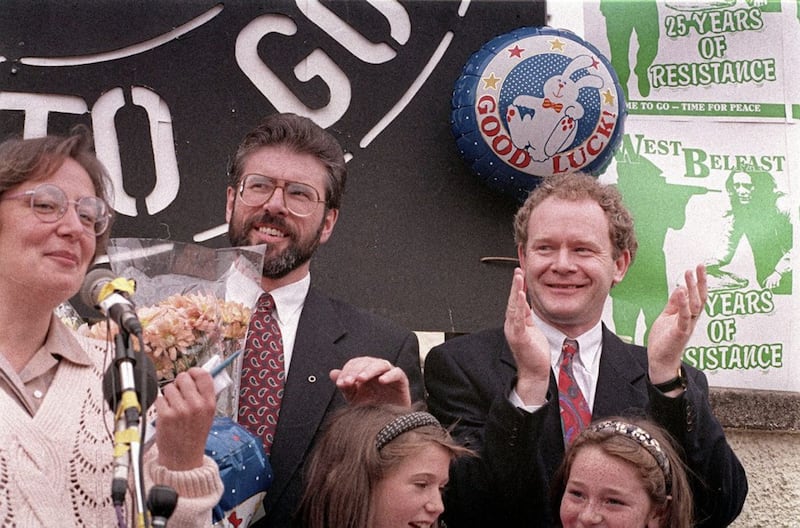
I asked Martin what they were going to do about it.
“I think they’ll get the message pretty soon,” was all he said.
Believe it or not, I understood exactly what he was saying.
Fast forward two days and I’m sitting at home on the Friday night having a glass of wine when the programme I was watching is suddenly interrupted by a newsflash to say a massive bomb had gone off in Canary Wharf.
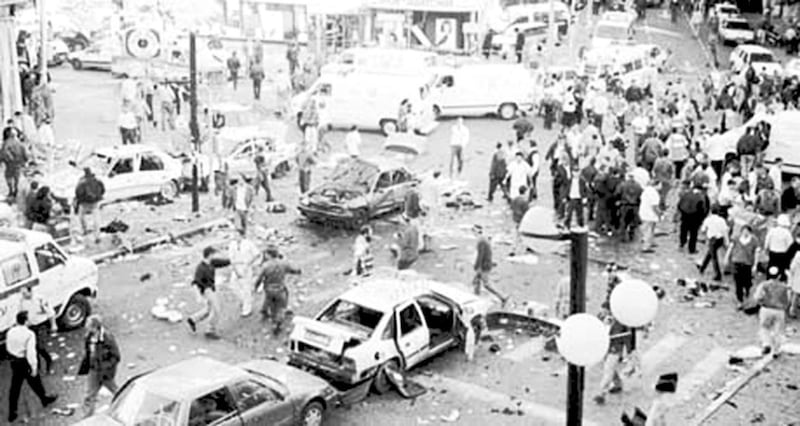
Needless to say, I didn’t need Hercule Poirot to unravel the clue. I knew the message Martin had talked about had been delivered.
Recently the BBC aired a programme, The Secret Army, which was shot in Derry in 1972, right at the height of the Troubles. It’s central character was J Bowyer Bell, an American academic, and the Beeb folks suggest that because of the odd mix of personnel involved in the making of the documentary, it tangled McGuinness, British intelligence and the CIA in a strange web of intrigue.
The fact that the IRA allowed an American TV crew to film its members as they engaged in weapons training, patrols, gun battles and bombing missions was, admittedly, very strange. The operations were real, not staged, and senior commanders, primarily McGuinness, appeared on camera without concealment.
Following the broadcast, social media was agog with a multiplicity of conspiracy theories about McGuinness’s role in the IRA and whether he had been compromised by British intelligence, because he was clearly seen putting a bomb into a car. Surely, claimed numerous keyboard warriors, they could have put him away for years for that deed alone?
One contributor to the debate, from the unionist community, observed: “What’ll bother republicans about McGuinness is not unionists saying he may have been compromised by British intelligence, it’s that in their heart of hearts they know it’s plausible. They know how deep the infiltration went. They just can’t admit that. He’s too big to fail.”
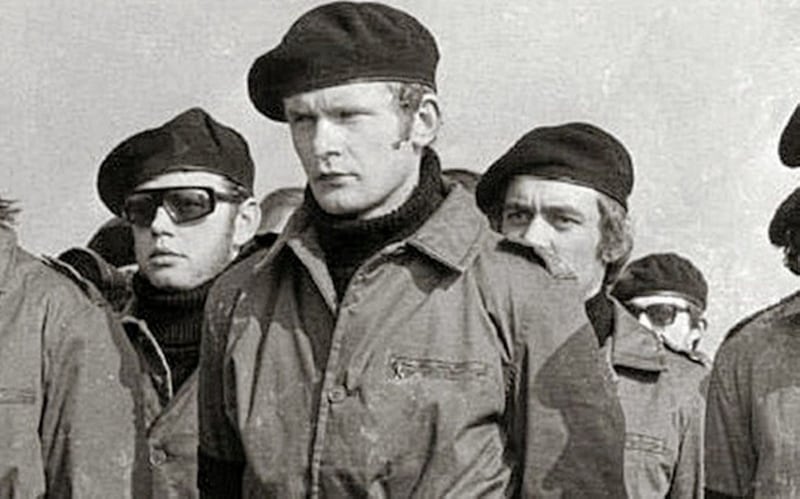
I am putting my cards on the table here, I think the conspiracy theories are for the birds.
In 1972 the Brits wouldn’t have needed an American television programme to tell them Martin McGuinness was the leader of the IRA in Derry. The dogs in the street could have told them that.
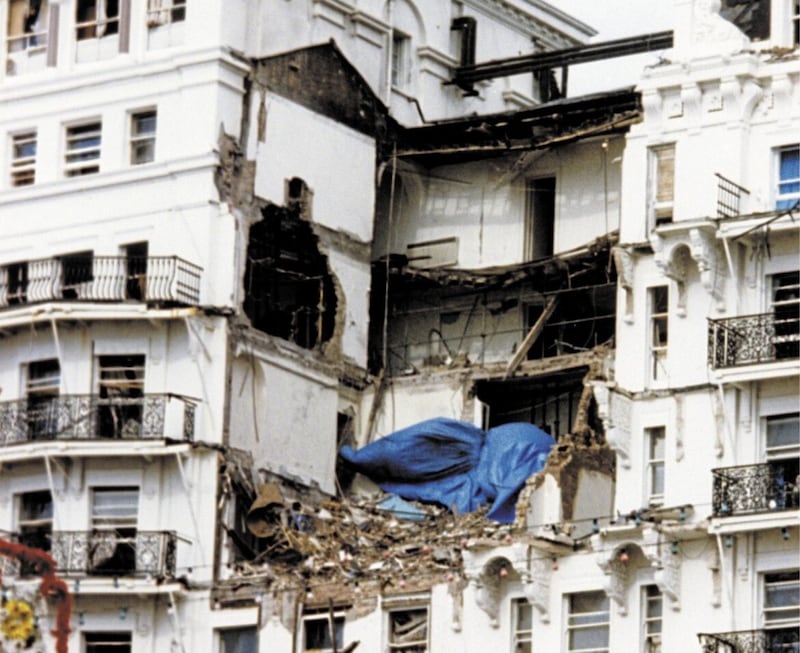
Secondly, the substantive ‘evidence’ that he was not compromised are actual events. It’s generally accepted he was chief-of-staff in October 1984 when the IRA bombed the Brighton Hotel during the Tory Party conference. That bomb could have wiped out the entire UK government.
Is anyone seriously suggesting that an enraged Margaret Thatcher, or British intelligence, would have missed the opportunity at that time to out the big republican icon as a double agent? Not a chance.
He was also still a senior IRA figure in February ‘91 when mortars landed close to Downing Street during a cabinet meeting. Again, the IRA came close to a massive propaganda win.
I am putting my cards on the table here, I think the conspiracy theories are for the birds
Surely, if the Brits wanted to send the IRA into a spin, why didn’t John Major, the then PM, not expose him?
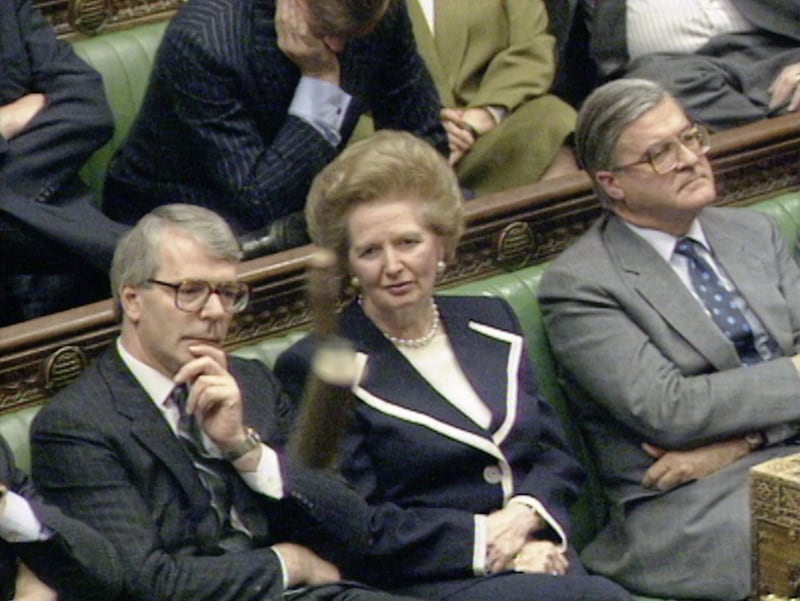
And let’s not forget my conversation in 1996. Here was a man clearly at the heart of what the republican movement was doing.
So, put it like this, if Martin McGuinness’s position as an IRA leader was compromised by British intelligence, it must rank as one of the most abject failures in history.






